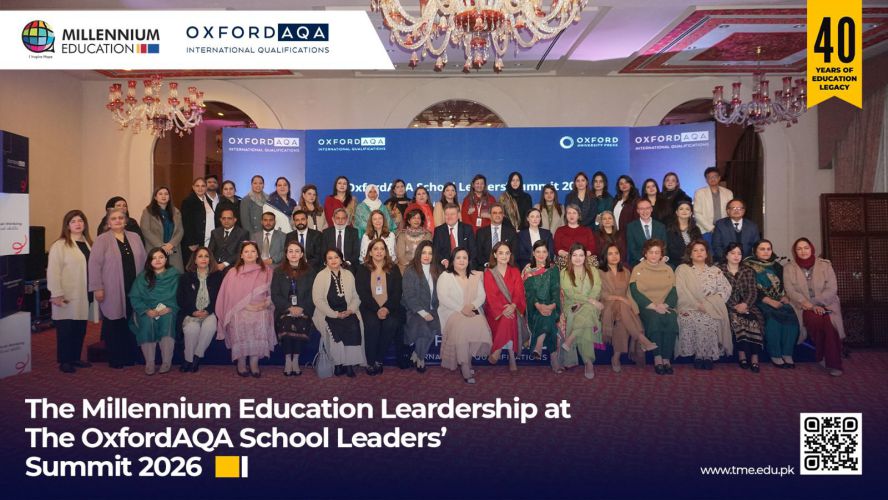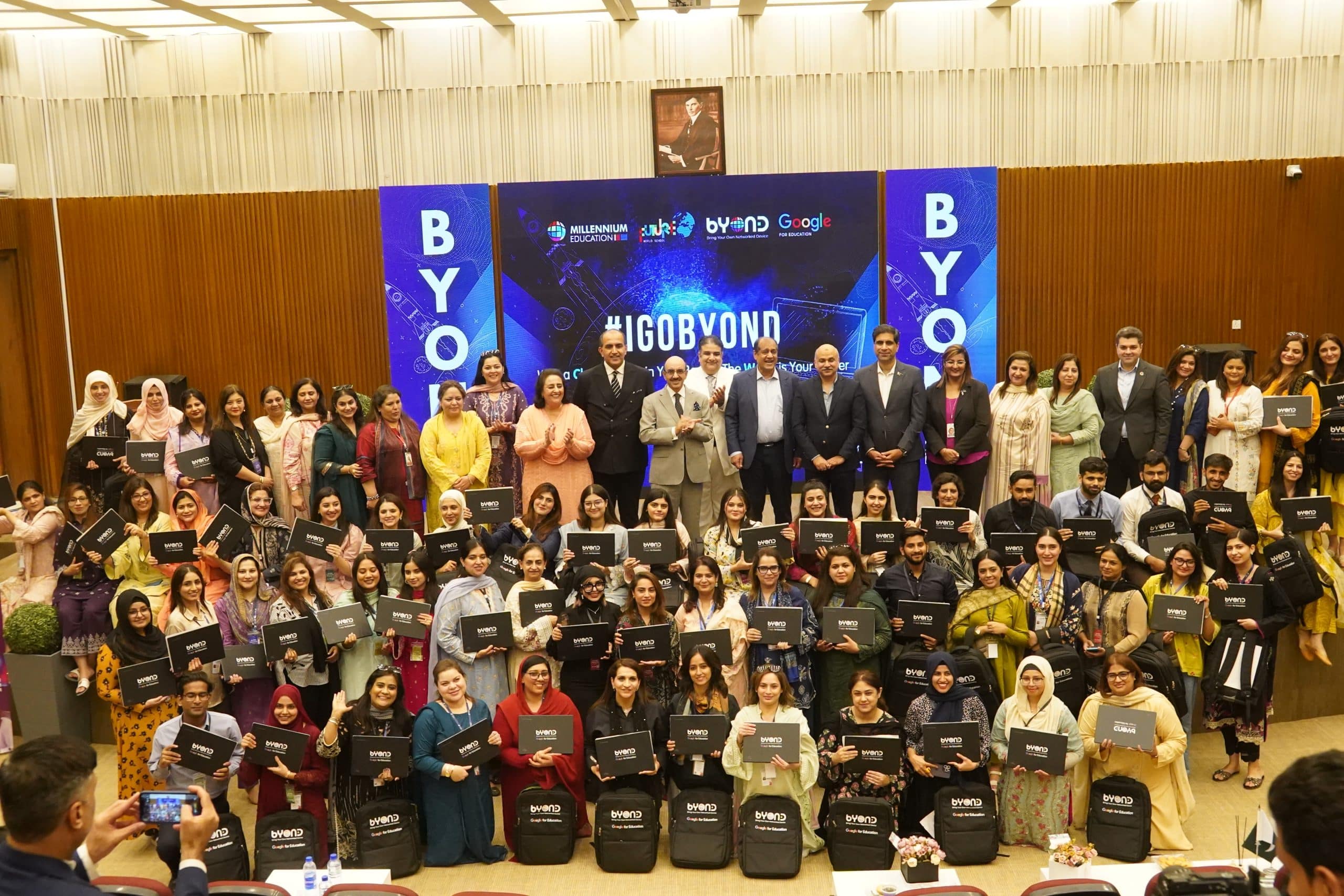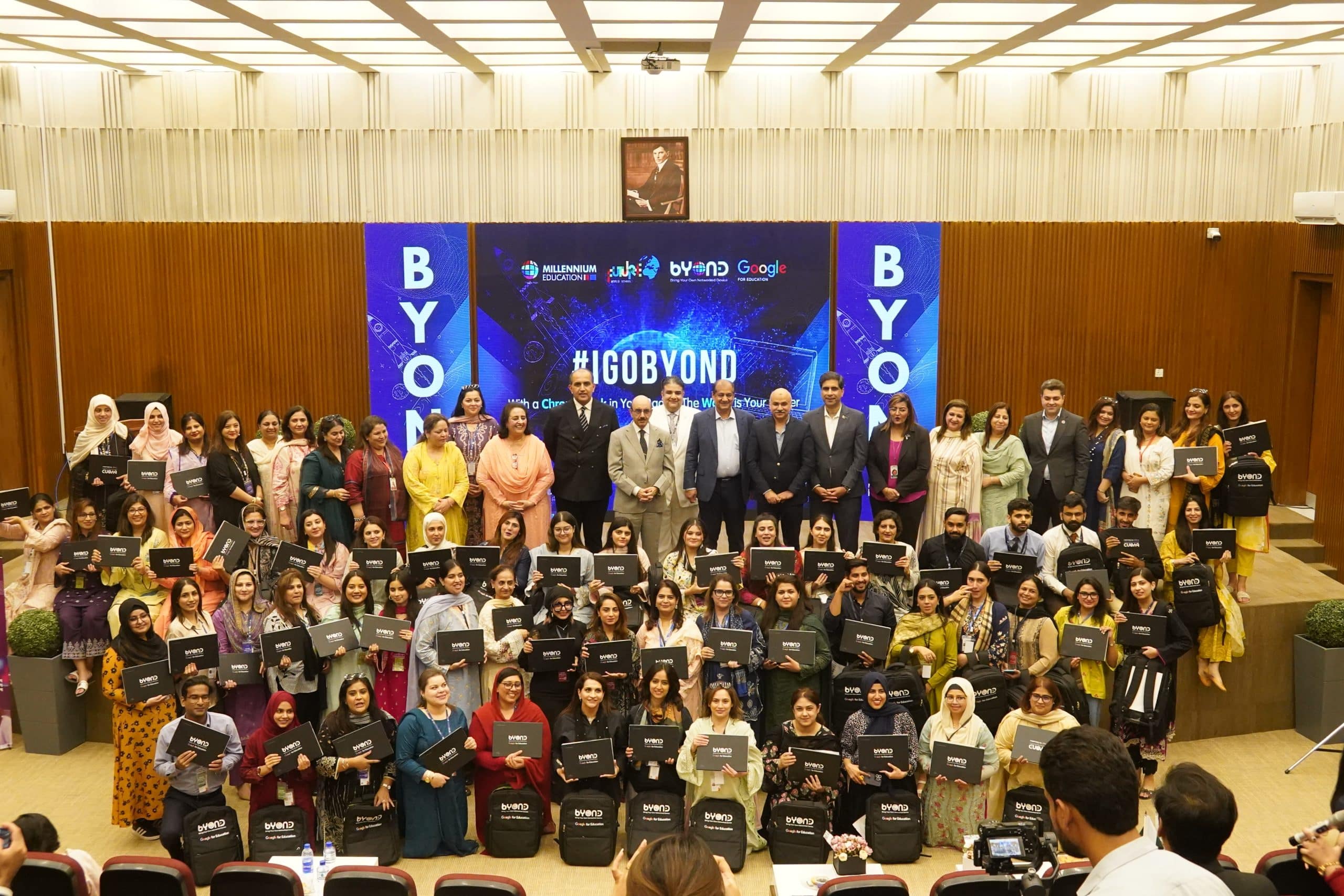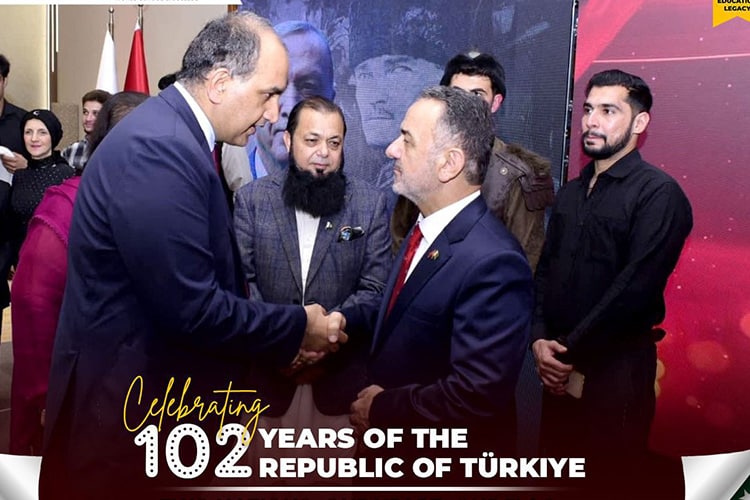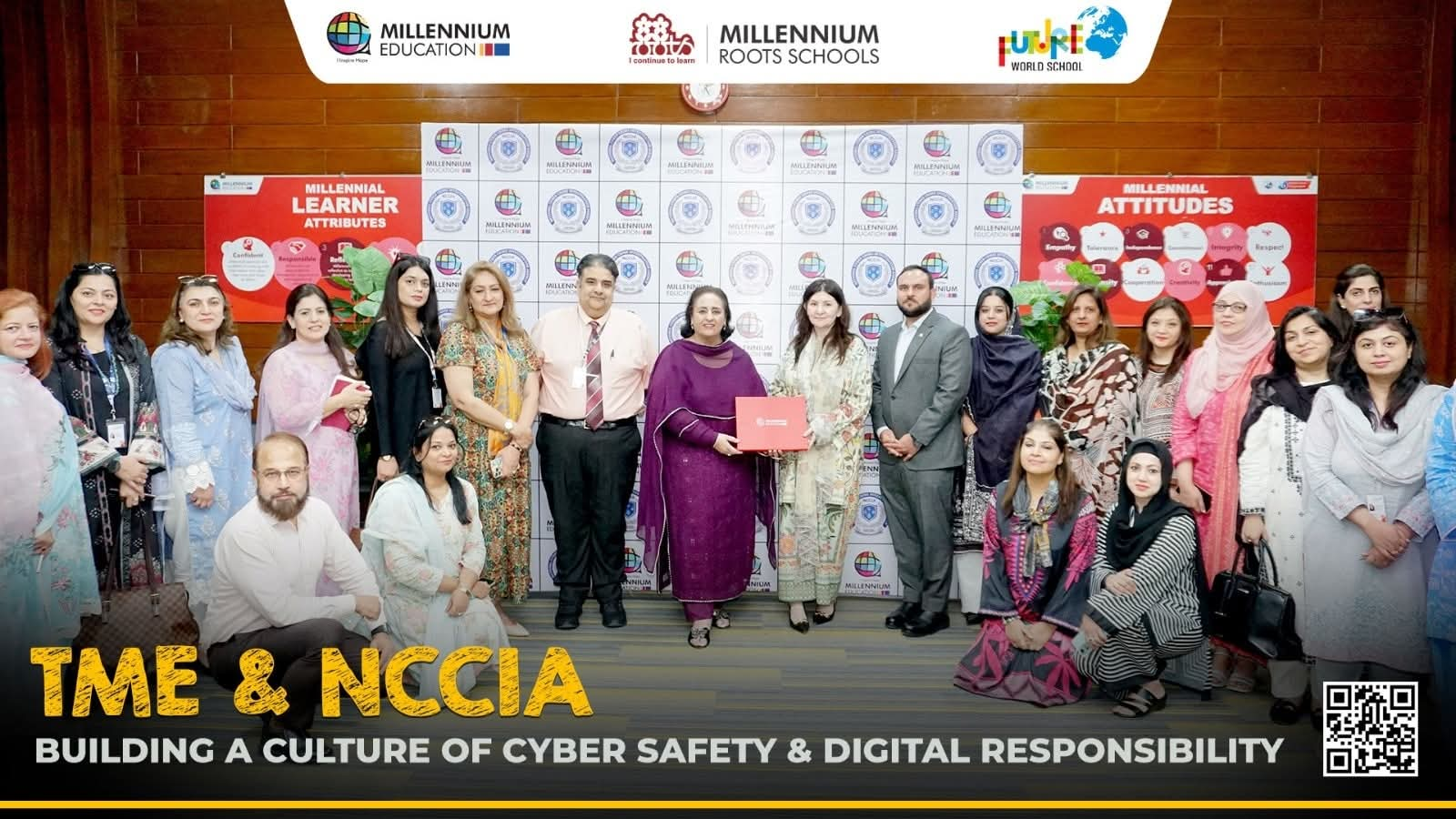Choosing the right educational foundation for your child is one of the most crucial decisions parents make. In Pakistan, Montessori schools have gained significant popularity due to their unique approach to early childhood education. Emphasizing independence, hands-on learning, and fostering a love for discovery, Montessori education prepares children not just academically but also emotionally and socially for the challenges ahead. This comprehensive guide explores the best Montessori schools in Pakistan, highlighting their unique offerings, teaching philosophies, and what sets them apart.
Introduction to Montessori Education
Montessori education, developed by Dr. Maria Montessori in the early 20th century, is a child-centered educational approach based on scientific observations of children. It emphasizes hands-on, experiential learning, and fosters a sense of autonomy and responsibility in children. Montessori classrooms are designed to encourage exploration, creativity, and collaboration, allowing children to learn at their own pace within a structured environment.
Core Principles of Montessori Education
- Respect for the Child: Recognizing each child’s unique potential and providing an environment that respects their individuality.
- Prepared Environment: Classrooms are meticulously organized to facilitate independent learning and exploration.
- Hands-On Learning: Children engage with tangible materials that help them understand abstract concepts.
- Mixed-Age Classrooms: Encouraging peer learning and mentorship through age-diverse groups.
- Intrinsic Motivation: Fostering a love for learning by allowing children to choose activities that interest them.
Why Choose Montessori Schools in Pakistan?
Pakistan’s education landscape is evolving, with a growing number of parents seeking alternatives to traditional rote-based learning systems. Best Montessori schools offer several advantages that align with modern educational needs:
- Holistic Development: Focuses not only on academic excellence but also on emotional, social, and physical development.
- Individualized Learning: Tailors education to each child’s learning style and pace, ensuring no child is left behind.
- Critical Thinking Skills: Encourages problem-solving and independent thinking, preparing children for future challenges.
- Positive Learning Environment: Creates a nurturing and supportive atmosphere that enhances learning experiences.
Montessori education in Pakistan is accessible across various cities, providing quality early childhood education that lays a strong foundation for lifelong learning.
Top Montessori Schools in Pakistan
Pakistan is home to several esteemed Montessori schools renowned for their exceptional educational standards, experienced faculty, and state-of-the-art facilities. Below is a detailed overview of the top Montessori schools in the country.
Roots Millennium Schools Montessori Programme
Location: Multiple branches across Pakistan, including Islamabad, Lahore, Karachi, and Rawalpindi.
Overview: Roots Millennium Schools (RMS) are renowned for their cutting-edge educational practices and focus on providing holistic education. The Montessori programme at RMS combines traditional Montessori principles with innovative teaching techniques to prepare children for the future.
Key Features:
- Certified Montessori-trained educators with global teaching experience.
- Well-equipped, vibrant classrooms designed for hands-on and exploratory learning.
- Emphasis on cognitive, emotional, and social development.
- Integration of digital tools and STEAM (Science, Technology, Engineering, Arts, and Mathematics) concepts into the curriculum.
- Safe and stimulating environment with extensive indoor and outdoor learning spaces.
Why It Stands Out: Roots Millennium Schools offer a unique blend of Montessori methodology and 21st-century learning strategies, ensuring that students not only excel academically but also develop critical life skills. Their nationwide presence makes them a convenient option for parents across Pakistan.
The Educators
Location: Multiple branches across Islamabad, Rawalpindi, and other major cities.
Overview: The Educators is one of Pakistan’s leading educational networks, offering a Montessori program designed for children aged 2.5 to 6 years. The curriculum emphasizes experiential learning, creativity, and social skills development.
Key Features:
- Certified Montessori-trained teachers
- Safe and stimulating learning environments
- Emphasis on holistic development
- Integration of technology to enhance learning
Why It Stands Out: The Educators’ widespread presence and consistent quality make it a popular choice among parents seeking reliable Montessori education.
Montessori Foundation Pakistan
Location: Islamabad
Overview: Dedicated exclusively to Montessori education, Montessori Foundation Pakistan offers programs that adhere strictly to Montessori principles. The school focuses on fostering independence and a love for learning from an early age.
Key Features:
- Authentic Montessori materials and environment
- Small class sizes for personalized attention
- Focus on both academic and life skills
- Regular parent-teacher interactions
Why It Stands Out: Its unwavering commitment to traditional Montessori methods ensures a genuine educational experience for children.
Little Angels Montessori
Location: Lahore
Overview: Little Angels Montessori is renowned for its vibrant and engaging classrooms. Catering to children aged 2 to 6 years, the school emphasizes creativity, critical thinking, and emotional intelligence.
Key Features:
- Highly trained Montessori educators
- Interactive and colorful learning spaces
- Emphasis on arts and physical activities
- Structured yet flexible curriculum
Why It Stands Out: The school’s emphasis on a well-rounded education, including arts and physical development, sets it apart from others.
Blossom Montessori
Location: Karachi
Overview: Blossom Montessori offers a nurturing environment where children can explore and learn at their own pace. The school is dedicated to creating a foundation of curiosity and resilience in young learners.
Key Features:
- Montessori-certified teachers
- Child-friendly and safe facilities
- Focus on developing social and emotional skills
- Inclusive education practices
Why It Stands Out: Blossom Montessori’s focus on emotional intelligence alongside academic learning provides a balanced educational approach.
New Dawn Montessori
Location: Islamabad
Overview: New Dawn Montessori is known for its innovative teaching methods and commitment to Montessori philosophy. The school provides a rich learning environment that encourages exploration and discovery.
Key Features:
- Comprehensive Montessori curriculum
- Modern facilities with Montessori-specific materials
- Emphasis on independent learning
- Strong community and parental involvement
Why It Stands Out: The integration of modern facilities with traditional Montessori methods offers a unique and effective learning experience.
Bright Minds Montessori
Location: Lahore
Overview: Bright Minds Montessori focuses on unlocking each child’s potential through individualized learning plans. The school’s approach ensures that every child receives the attention they need to thrive.
Key Features:
- Personalized learning plans
- Experienced Montessori-trained staff
- Safe and interactive classrooms
- Emphasis on both academic and personal growth
Why It Stands Out: Its dedication to personalized education ensures that each child’s unique needs and strengths are addressed.
Kids World Montessori
Location: Karachi
Overview: Kids World Montessori offers a dynamic learning environment where children are encouraged to explore and learn through play. The school prioritizes creativity, critical thinking, and social skills.
Key Features:
- Play-based learning integrated with Montessori principles
- Certified Montessori educators
- Safe and engaging facilities
- Focus on fostering independence and confidence
Why It Stands Out: The blend of play-based learning with Montessori methods creates an engaging and effective educational experience.
Star Montessori
Location: Islamabad and Lahore
Overview: Star Montessori is dedicated to providing quality Montessori education that fosters intellectual, emotional, and social growth. The school’s curriculum is designed to nurture a child’s innate curiosity and love for learning.
Key Features:
- Authentic Montessori environment
- Highly qualified Montessori teachers
- Emphasis on holistic development
- Strong focus on community and collaboration
Why It Stands Out: Star Montessori’s comprehensive approach to education ensures well-rounded development in every child.
Early Years Montessori
Location: Karachi
Overview: Early Years Montessori offers programs for children aged 2 to 6 years, focusing on creating a foundation for lifelong learning. The school emphasizes exploration, creativity, and critical thinking.
Key Features:
- Montessori-certified staff
- Interactive and resource-rich classrooms
- Emphasis on both academic and personal skills
- Supportive and inclusive community
Why It Stands Out: The school’s commitment to fostering both academic and personal growth prepares children for future educational endeavors.
Harmony Montessori
Location: Lahore
Overview: Harmony Montessori is dedicated to creating a harmonious learning environment where children can thrive. The school’s curriculum is designed to balance academic excellence with personal development.
Key Features:
- Trained Montessori educators
- Safe and nurturing classrooms
- Focus on emotional and social development
- Integration of arts and physical activities
Why It Stands Out: Harmony Montessori’s balanced approach ensures that children develop academically while also nurturing their emotional and social well-being.
Criteria for Selecting the Best Montessori Schools
Choosing the Best Montessori schools involves careful consideration of various factors to ensure that the institution aligns with your child’s needs and your educational expectations. Here are key criteria to consider:
1. Montessori Certification
Ensure that the school is accredited by recognized Montessori organizations such as the Association Montessori Internationale (AMI) or the American Montessori Society (AMS). Certification ensures adherence to authentic Montessori principles and standards.
2. Qualified Educators
Montessori-trained teachers are essential for delivering the Montessori curriculum effectively. Verify the qualifications and training of the teaching staff to ensure they are well-versed in Montessori methods.
3. Learning Environment
A prepared environment is crucial in Montessori education. The classrooms should be well-organized, with age-appropriate materials and ample space for exploration and independent learning.
4. Curriculum and Programs
Review the school’s curriculum to ensure it covers all essential areas of Montessori education, including practical life, sensory activities, mathematics, language, and cultural studies. Additionally, check if the school offers enrichment programs such as arts, music, and physical education.
5. Student-Teacher Ratio
A lower student-teacher ratio allows for more individualized attention and support. This ensures that each child’s unique needs and learning pace are addressed effectively.
6. Parental Involvement
Schools that encourage active parental involvement foster a supportive community that enhances the child’s learning experience. Look for schools that offer regular parent-teacher meetings, workshops, and opportunities for parents to engage in their child’s education.
7. Facilities and Resources
Modern facilities with well-maintained classrooms, outdoor play areas, and access to Montessori-specific materials contribute to a conducive learning environment. Ensure that the school provides the necessary resources to support diverse learning activities.
8. Reputation and Reviews
Research the school’s reputation through testimonials, reviews, and word-of-mouth recommendations. A school with positive feedback from parents and a history of successful student outcomes is likely to provide a high-quality education.
9. Location and Accessibility
Consider the school’s location in relation to your home or workplace. Accessibility and convenience can significantly impact your daily routine and your child’s punctuality and attendance.
10. Cost and Affordability
Evaluate the school’s fees in relation to the quality of education and services offered. Ensure that the school provides value for money and that the fees align with your budget without compromising on educational standards.
Benefits of Montessori Education
Montessori education offers numerous benefits that contribute to the holistic development of children. Here are some key advantages:
1. Promotes Independence
Montessori education encourages children to take responsibility for their own learning. From choosing activities to managing their time, children develop a sense of autonomy and self-discipline.
2. Enhances Social Skills
Mixed-age classrooms facilitate peer learning and cooperation. Children learn to work collaboratively, respect others’ perspectives, and develop strong social bonds.
3. Fosters Creativity and Critical Thinking
Montessori’s hands-on approach stimulates creativity and encourages children to think critically. They engage in problem-solving activities that enhance their analytical and innovative abilities.
4. Develops Emotional Intelligence
Montessori education emphasizes emotional growth by teaching children to understand and manage their emotions. Activities are designed to build empathy, resilience, and self-awareness.
5. Encourages Lifelong Learning
By nurturing a love for discovery and exploration, Montessori education instills a passion for lifelong learning. Children develop intrinsic motivation to seek knowledge and continuously improve themselves.
6. Tailors to Individual Learning Styles
Montessori classrooms cater to diverse learning styles and paces. Personalized learning plans ensure that each child’s unique strengths and needs are addressed effectively.
7. Prepares for Future Academic Success
The skills acquired through Montessori education, such as critical thinking, problem-solving, and independent learning, lay a strong foundation for academic success in higher education and beyond.
Tips for Parents Choosing a Montessori School
Selecting the Best Montessori schools involves thoughtful consideration and proactive engagement. Here are some tips to help you make an informed decision:
1. Visit Multiple Schools
Take the time to visit several Montessori schools to observe their classrooms, meet the teachers, and get a feel for the environment. This firsthand experience will help you gauge which school aligns best with your child’s needs.
2. Ask Questions
Prepare a list of questions to ask during your visits. Inquire about the teacher’s qualifications, the student-teacher ratio, the curriculum, extracurricular activities, and how the school handles discipline and behavioral issues.
3. Involve Your Child
Consider your child’s preferences and comfort level. Involve them in the decision-making process by discussing what they enjoy and what they feel excited about in a learning environment.
4. Check Accreditation
Ensure that the school is accredited by recognized Montessori organizations. Accreditation is a mark of quality and adherence to Montessori principles.
5. Assess the Learning Environment
Look for classrooms that are clean, organized, and equipped with authentic Montessori materials. The environment should be inviting and conducive to exploration and independent learning.
6. Evaluate the Curriculum
Review the school’s curriculum to ensure it covers all essential Montessori areas and offers a balanced mix of academic, creative, and physical activities.
7. Consider Logistics
Factor in the school’s location, operating hours, transportation options, and fee structure. Choose a school that fits well with your family’s schedule and budget.
8. Seek Recommendations
Talk to other parents, educators, and community members to get recommendations and insights into different Montessori schools in your area.
9. Observe Classroom Interactions
During your visits, observe how teachers interact with students. Positive, respectful, and supportive interactions are indicative of a healthy learning environment.
10. Trust Your Instincts
Ultimately, trust your instincts and choose the school where you feel your child will thrive both academically and personally.
Conclusion
Selecting the best Montessori schools in Pakistan is a significant step toward ensuring your child receives a quality education that fosters independence, creativity, and a lifelong love for learning. With numerous reputable Montessori schools across the country, parents have a wealth of options to choose from. By carefully evaluating each school based on key criteria and considering your child’s unique needs, you can make an informed decision that sets the foundation for their future success.
Montessori education’s holistic approach not only prepares children academically but also nurtures their emotional and social well-being, equipping them with the skills necessary to navigate an ever-changing world. As you embark on this important journey, remember that the Best Montessori school can make a profound difference in your child’s educational and personal development.
Frequently Asked Questions (FAQs)
What Age Range Do Montessori Schools Cater To in Pakistan?
Montessori schools typically cater to children aged 2.5 to 6 years. Some schools may offer extended programs that bridge to primary education, accommodating children up to 12 years old.
How Much Do Montessori Schools Cost in Pakistan?
Tuition fees for Montessori schools in Pakistan vary based on location, facilities, and reputation. On average, fees range from PKR 20,000 to PKR 100,000 per term. It’s advisable to inquire directly with the schools for specific fee structures.
Are Montessori Schools in Pakistan Accredited?
Many Montessori schools in Pakistan are accredited by international Montessori organizations such as AMI or AMS. Accreditation ensures that the school adheres to authentic Montessori principles and maintains high educational standards.
Can Children Enroll in Montessori Schools at Any Age?
While Montessori schools primarily cater to early childhood education, some institutions offer programs for older children, including primary and even secondary levels, following Montessori methodologies.
What Makes Montessori Education Different from Traditional Education?
Montessori education is child-centered, emphasizing independence, hands-on learning, and individualized instruction. Unlike traditional education, which often relies on rote memorization and teacher-led instruction, Montessori encourages exploration, critical thinking, and self-directed learning.
How Do Montessori Schools Assess Student Progress?
Montessori schools assess student progress through continuous observation and individualized assessments rather than standardized testing. Teachers monitor each child’s development and provide feedback based on their unique learning journey.
Is Montessori Education Suitable for All Children?
Montessori education is versatile and can benefit a wide range of children. However, it is particularly effective for those who thrive in an environment that promotes independence, self-motivation, and hands-on learning.
How Do Montessori Schools Handle Discipline?
Discipline in Montessori schools is guided by respect and understanding. Teachers use positive reinforcement and encourage children to take responsibility for their actions, fostering self-discipline and emotional regulation.
What Extracurricular Activities Do Montessori Schools Offer?
Many Montessori schools offer a variety of extracurricular activities, including art, music, physical education, and language classes. These activities complement the Montessori curriculum by promoting creativity and physical development.
How Can Parents Support Montessori Education at Home?
Parents can support Montessori education by creating a structured and nurturing home environment, encouraging independence, providing opportunities for exploration, and maintaining open communication with teachers to reinforce learning and development.
Choosing the Best Montessori schools in Pakistan can set your child on a path of lifelong learning and personal growth. By understanding the principles of Montessori education, evaluating your options carefully, and involving your child in the decision-making process, you can ensure that your child receives the best possible start to their educational journey.

